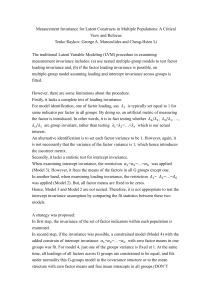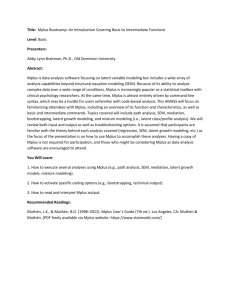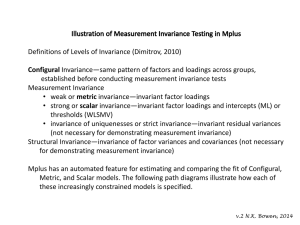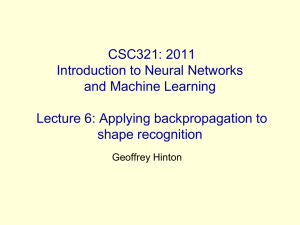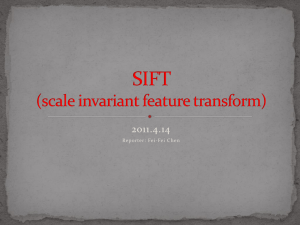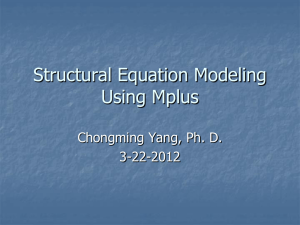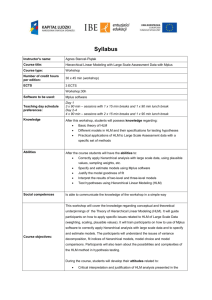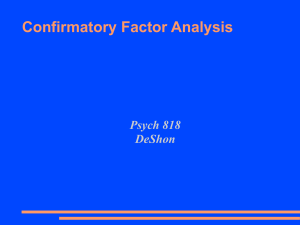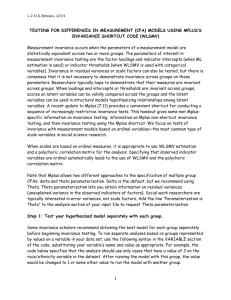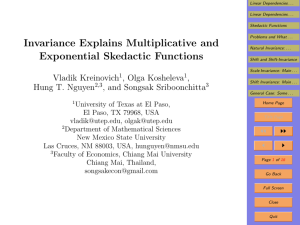Course description form
advertisement
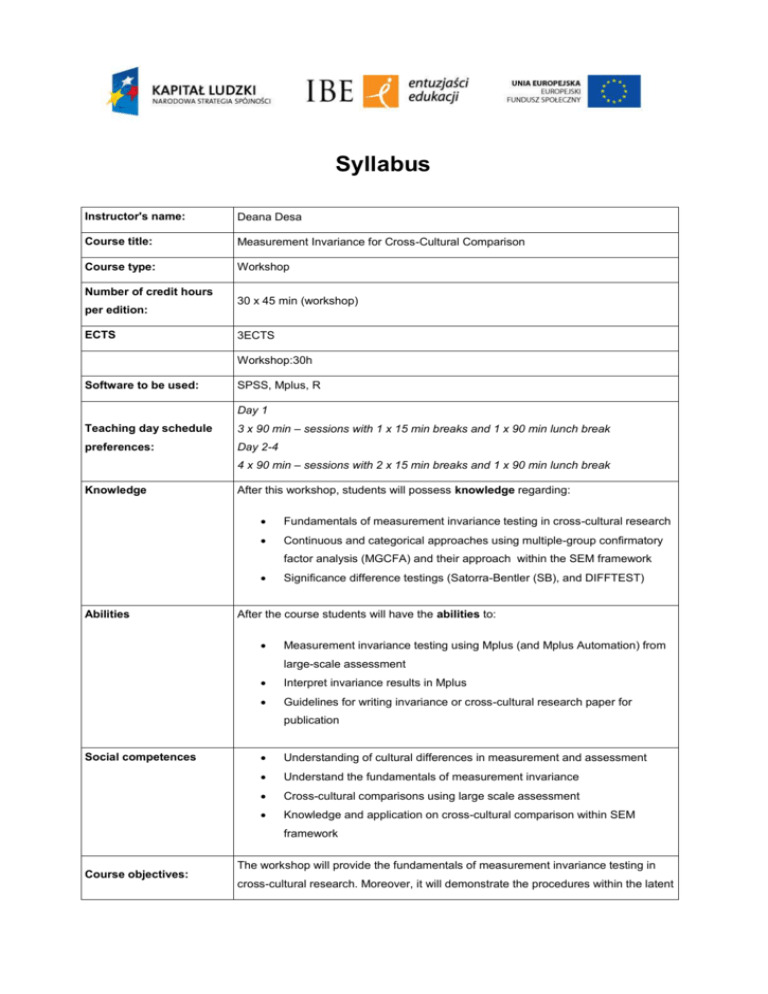
Syllabus Instructor's name: Deana Desa Course title: Measurement Invariance for Cross-Cultural Comparison Course type: Workshop Number of credit hours per edition: ECTS 30 x 45 min (workshop) 3ECTS Workshop:30h Software to be used: SPSS, Mplus, R Day 1 Teaching day schedule 3 x 90 min – sessions with 1 x 15 min breaks and 1 x 90 min lunch break preferences: Day 2-4 4 x 90 min – sessions with 2 x 15 min breaks and 1 x 90 min lunch break Knowledge After this workshop, students will possess knowledge regarding: Fundamentals of measurement invariance testing in cross-cultural research Continuous and categorical approaches using multiple-group confirmatory factor analysis (MGCFA) and their approach within the SEM framework Abilities Significance difference testings (Satorra-Bentler (SB), and DIFFTEST) After the course students will have the abilities to: Measurement invariance testing using Mplus (and Mplus Automation) from large-scale assessment Interpret invariance results in Mplus Guidelines for writing invariance or cross-cultural research paper for publication Social competences Understanding of cultural differences in measurement and assessment Understand the fundamentals of measurement invariance Cross-cultural comparisons using large scale assessment Knowledge and application on cross-cultural comparison within SEM framework Course objectives: The workshop will provide the fundamentals of measurement invariance testing in cross-cultural research. Moreover, it will demonstrate the procedures within the latent traits framework for more than two groups. Both, the continuous and categorical approach using multiple-group confirmatory factor analysis (MG-CFA) will be reviewed. Knowledge in basic statistics and latent trait analysis Prerequisites: This training is well suited for participants with basic understanding on statistics and latent trait analysis (e.g., factor analysis, structural equation modeling). Knowledge of the software is a plus but not required. Actively participate in the workshop Pass requirements: Actively participate in the analytical exercises Oral presentation from the analysis and exercises Compulsory Readings Byrne, B. M., & Watkins, D. (2003). The Issue Of Measurement Invariance Revisited. Journal of Cross-Cultural Psychology, 34(2), 155–175. Chen, F. F. (2007). Sensitivity of goodness of fit indexes to lack of measurement invariance. Structural Equation Modeling, 14 (3), 464–504. Little, T. D., & Slegers, D. W. (2005). Factor analysis: Multiple groups. Encyclopedia of statistics in behavioral science. Lubke, G., & Muthén, B. (2004a). Applying multigroup confirmatory factor models for continuous outcomes to likert scale data complicates meaningful group comparisons. Structural Equation Modeling., 11 , 514–534. Meredith, W. (1993). Measurement invariance, factor analysis and factorial Recommended reading: invariance. Psychometrika, 58 (4), 525–543. Retrieved 2013-06-10 Millsap, R. E. (1995). Measurement invariance, predictive invariance, and the duality paradox. Multivariate Behavioral Research, 30 (4), 577–605. Millsap, R. E., & Olivera-Aguilar, M. (2012). Investigating measurement invariance using confirmatory factor analysis. In Handbook of structural equation modeling. New York: Guilford. Additional Readings Cheung, G. W., & Rensvold, R. B. (2002). Evaluating goodness-of-fit indexes for testing measurement invariance. Structural equation modeling, 9 (2), 233– 255. Davidov, E. (2008). A cross-country and cross-time comparison of the human values measurements with the second round of the european social survey. In Survey research methods (Vol. 2, pp. 33–46). Lubke, G., & Muthén, B. (2004b). Factor-analyzing likert scale data under the assumption of multivariate normality complicates a meaningful comparison of observed groups or latent classes. Structural Equation Modeling, 11 , 514–534. Muthén, L. K., & Muthén, B. O. (2012). Mplus user’s guide (7th ed.). Los Angeles, CA: Muthén & Muthén. Muthén, B., & Asparouhov, T. (2002). Latent variable analysis with categorical outcomes:Multiple-group and growth modeling in mplus. Mplus web notes, 4 (5), 1–22. Millsap, R. E., & Yun-Tein, J. (2004). Assessing factorial invariance in orderedcategorical measures. Multivariate Behavioral Research, 39 (3), 479–515. Exercise 1 Aim: Implementation of the continuous MGFCA in Mplus Outcome: Participants have applied knowledge gained from the workshop, and applied it to continuous invariance testing using LSA data in Mplus Form: colloquium/group-work Exercise 2 Aim: Implementation of the categorical MGFCA in Mplus Course plan: Outcome: Participants have applied knowledge gained from the workshop, and applied it to categorical invariance testing using LSA data in Mplus Form: colloquium/group-work Exercise 3 Aim: Interpretation of invariance analyses and oral presentation Outcome: Participants have applied theoretical and contextual knowledge for the interpretation of the results, as well as how to present invariance results in research paper Form: group-work/individually
